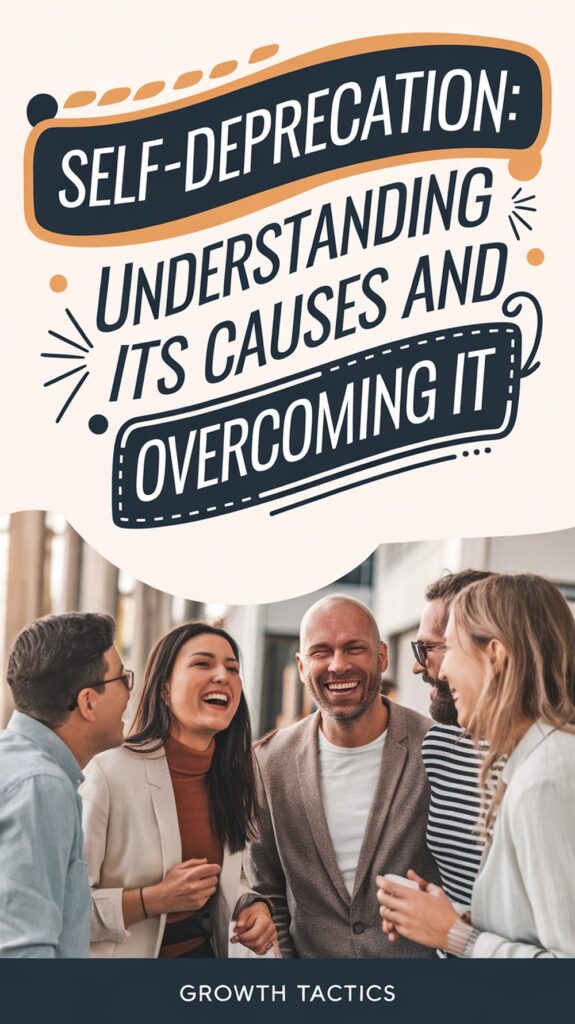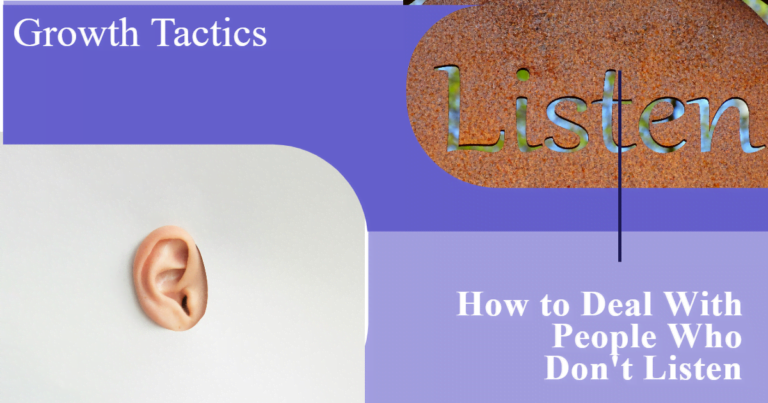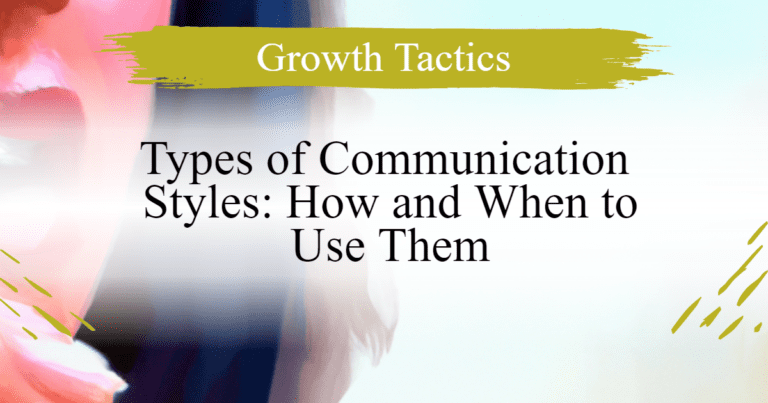Self-deprecation is a form of humor or communication where individuals downplay their own abilities, achievements, or traits, often to appear humble or relatable.
Used properly, self-deprecation creates rapport and defuses awkwardness. But used too much it can erode self-assurance or even encourage destructive thoughts. Finding a balance is important.
In this article, we will discuss everything there is to know about self-deprecation, including how and when to use it.
Jump To Section
What Is Self-Deprecation?

Self-deprecation is essentially putting yourself down, either your skills, traits, or accomplishments, in an attempt to relate to others or defend against attacks. It could be something as simple as saying, “I don’t even know how I got this job”. Although it sounds innocent, even lovable, self-deprecation can be socially uniting on one hand, but psychologically destructive at the same time.
Differentiating Humor from Harmful Behavior
|
Aspect |
Self-Deprecating Humor |
Harmful Self-Belittlement |
|---|---|---|
|
Intent |
To connect or entertain |
To mask deeper insecurities |
|
Frequency |
Occasional |
Habitual or excessive |
|
Emotional Impact |
Light-hearted, builds rapport |
Erodes self-confidence over time |
Self-deprecating humor, in moderation, can build social capital by making someone seem accessible or relatable. For instance, a leader joking about their clumsiness could relax their team. When self-deprecation is frequent or too harsh, it can damage self-esteem and impact the way others see you.
It’s the context, tone, and delivery that make the difference between funny and hurtful. A humorous tone is usually a sign of goodwill, but a grim, belittling tone can expose serious problems.
Why People Use Self-Deprecation
Psychologically, self-deprecation can manifest as a fear of judgment, a desire for social acceptance, or a strategy to deflect criticism. We often de-emphasize our positives so we don’t come off as boastful. For example, some people may chuckle their way through accomplishments to spare others’ discomfort.
As a defense mechanism, self-deprecation helps minimize possible embarrassment from others. By “owning” their flaws, they eliminate the bite of outside criticism. In social settings, it can relieve tension or generate laughter.
Some cultures promote self-deprecation as a way of being humble or relatable. This is especially true of those in the upper echelons who want to temper their status with accessibility.
The Role of Past Experiences and Trauma
Kids who are excessively criticized or bullied tend to develop these seeds of self-deprecation. A child who’s constantly told they’re ‘not good enough’ is going to believe it, even when they reach adulthood. Similarly, repeated failure or trauma that isn’t dealt with can manifest even deeper negative self-talk. Healing these wounds with therapy or working on self-compassion can assist you in recalibrating your self-image.
Signs of Self-Deprecation

Self-deprecation often manifests in subtle yet impactful ways. Let’s talk about how to spot it in yourself and others.
1. Difficulty Accepting Compliments
So many of us have a hard time taking compliments well. Say, for instance, a straightforward “You did a great job” could be received with, “Oh, it was nothing,” or “I got lucky this time.” This unease typically comes from low self-worth or a conviction that they’re unworthy of acclaim.
Over time, turning down positive feedback can feed feelings of unworthiness. Learning to accept compliments with a “Thank you” is not only polite, it’s a small but mighty act of self-recognition.
2. Habitual Downplaying of Achievements
Another sign is downplaying accomplishments, not to come off as arrogant. For example, a co-worker who nails a presentation may brush it off with, “It wasn’t that good,” to disarm any notice. Though humility’s a virtue, consistently minimizing like this communicates to outside observers and yourself that success isn’t something to be proud of.
This type of behavior erodes confidence in the long term and can even stifle opportunity. Instead, celebrating achievements, no matter how small, cultivates a sense of self-value. Acknowledging and celebrating milestones isn’t arrogance, it’s self-respect.
3. Fear of Seeming Arrogant or Disagreeable
Self-deprecation is usually used as a weapon to be likable. Society, especially modest cultures, frown upon too much self-promotion. The boundary between humility and self-deprecation is thin.
This fear can cripple you in the workplace, where self-promotion is essential. Knowing that confidence isn’t arrogance.
4. Overuse of Self-Deprecating Humor
Though it lightens the mood, excessive self-deprecating humor usually hides a real insecurity. Over time, this humor makes negative self-views feel normal. A little jocularity mixed with some positive affirmations becomes a better balance.
Below are some examples:
- “I’m awful at this, don’t anticipate too much.”
- “Trust me to mess this up!”
- “I’m not smart enough to figure that out.”
5. Constant Negative Self-Talk
Self-depreciating talk, such as “I’m not good enough,” feeds your self-doubt and may develop into anxiety or depression. Cognitive distortions like perfectionism or catastrophizing accentuate this cycle. Substituting these thoughts with positive affirmations is essential to repairing your mental health and escaping the cycle.
Effects of Self-Deprecation on Mental Health

When chronic, self-deprecation shapes how people view themselves and navigate their environments. When left unchecked, it can spiral into cycles that damage your mental health, relationships, and personal development.
Impact on Self-Esteem and Confidence
Self-deprecation slowly erodes self-esteem. When people are continually self-deprecating, they’re reinforcing the message that they’re ‘not enough.’ Over time, this internal monologue nurtures a soul-crushing sense of inadequacy.
Low self-esteem is hard to build confidence with. Negative self-image is like quicksand. Each effort to get ahead feels stiflingly more difficult. This keeps them from taking chances or seeking opportunities or savoring successes.
Increased Risk of Anxiety and Depression
The association between self-deprecation and mental illness is strong. Frequent self-deprecating behavior breeds a sense of despair that can escalate into panic or depression. For example, a self-deprecator who tells himself he ‘screws everything up’ might find himself stuck.
This creates a vicious cycle: negative self-talk fuels mental health struggles, and those struggles, in turn, amplify self-deprecation. Breaking this loop requires conscious effort of self-compassion. Treating yourself with the same kindness and understanding can dramatically alter this dynamic.
Loss of Optimism and Motivation
Perpetual self-deprecation kills motivation. It’s difficult to keep pushing when self-deprecating demons breathe in your ear, “Why bother? You’re going to fail regardless.” This attitude kills productivity and growth.
Strain on Personal and Professional Relationships
Self-deprecation influences how others see and treat us as well. In professional contexts, it can erode collaboration, since coworkers probably don’t trust a person who belittles themselves.
Likewise, within relationships, self-deprecating comments put up walls. Family and friends can get stuck in these dynamics, frustrated or at a loss of what to do to help.
Strategies to Overcome Self-Deprecation

Escaping the grasp of self-deprecation demands purposeful measures to replace destructive cycles with helpful ones as you cultivate self-awareness and self-compassion. Here are actionable tactics to start this evolution.
Embrace and Accept Compliments
By accepting compliments, you emphasize positive beliefs about yourself that can dramatically increase your self-esteem. Most of us have a hard time accepting compliments, often because we’re uncomfortable or don’t feel like we deserve them. Instead, train yourself to pause and respond with a humble, ‘Thank you.’ This tiny transition expresses appreciation and tells your mind that positive reinforcement is good.
Believing compliments can be challenging, but consider this: if someone took the time to acknowledge your strengths, isn’t it worth honoring their perspective? Try jotting down compliments you receive to relive them on tougher days. This habit can cultivate appreciation for others’ acknowledgment and, over time, transform your self-image.
Practice Positive Self-Talk Daily
How you talk to yourself is vital for your success. Instead of telling yourself how much you mess up, substitute it with something like, “I can learn and get better”. This helps cultivate a more positive self-image.
Use reminders, like sticky notes on your mirror, to engage in positive self-talk. Even 30 seconds in the morning, repeating affirmations, can establish a positive tone for your day. Remember, you wouldn’t say to a friend, ‘You’re no good,’ so why say it to yourself?
Keep a Journal to Track Achievements
Journaling is a concrete method for acknowledging your achievements and the good things you provide to the world. Begin by spending a couple of minutes every evening listing one positive thing you accomplished that day. In the long run, this habit shifts attention from imperfection to improvement.
Try keeping a gratitude section next to accomplishments. For example, write down three things you’re grateful for each day. Rereading these entries every now and then can remind you how far you’ve come and bolster your belief in your own skills.
Reframe Negative Thoughts into Constructive Ones
These thoughts typically skew reality, magnifying defects and overlooking virtues. Reframing means contesting these distortions and converting them into positive lessons. For instance, if you catch yourself thinking, “I’m awful at this,” spin it to, “Every time I do this is an opportunity to get better.”
Seek Professional Support When Needed
Therapy provides resources to tackle underlying instigators of self-deprecation, like impostor syndrome. CBT, in particular, helps reframe negative thought patterns as healthier ones. Identifying the right therapist for you is important, and group therapy offers shared experiences that can help you realize you’re not the only one who thinks that way.
Conclusion
Understanding the psychology behind self-deprecation and spotting its signs can help you reflect on how it affects your life. Though it may sometimes be a method for remaining grounded, habitual or destructive self-deprecation can damage your psyche and self-image.
By cultivating self-awareness, practicing self-compassion, and establishing boundaries, you can nurture healthier communication with yourself and those around you.

Frequently Asked Questions
What is self-deprecation?
Self-deprecation is when someone undervalues or criticizes themselves, often in a humorous way. It can be an ice breaker or a defense mechanism but it often exposes the most crippling of insecurities.
Why do people engage in self-deprecation?
Folks self-deprecate for different reasons. Like trolling for compliments, masking insecurity, or navigating group dynamics. It can be a product of low self-esteem or self-deprecation.
How can I recognize signs of self-deprecation?
Indicators are that you often crack self-deprecating jokes, brush off praise, or fixate on your imperfections. It can include deflecting compliments and minimizing successes.
Is self-deprecation harmful to mental health?
Too much self-deprecation poisons your soul. It could reduce self-esteem, lead to negative rumination, and foster anxiety or depression if unchecked.
What is the difference between healthy and harmful self-deprecation?
Good self-deprecation humorously relates without harming self-esteem. Bad self-deprecation is relentless negative self-talk or self-criticism that erodes confidence.
How can I stop self-deprecating?
Begin by practicing self-compassion, challenging negative thoughts, and accepting compliments. Work with your strengths, reach out to others, and don’t be afraid of professional assistance.
Does self-deprecation affect social interactions?
Yes, self-deprecation can affect social dynamics. Sure, it makes you seem like a relatable, humble person, but if you overuse it, it can turn some people off or impact their impression of your self-assurance.







